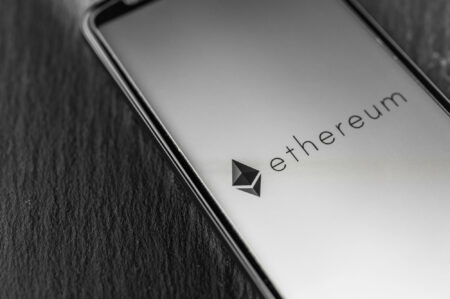What happened this week in the world of blockchain and cryptocurrencies? The most relevant local and international events as well as appealing background reports in a concise and compact weekly review.
Selected articles of the week:
Since its founding in 2018, the Swiss startup 21shares has grown into a global leader in exchange-traded products (ETPs) on digital assets. The company now manages over 10 billion USD across 54 listed products. Now, US-based crypto prime broker FalconX is taking the helm. Together, the two firms aim to advance the development of customized investment products to meet the growing demand from institutional and retail investors for regulated digital assets. No details were disclosed about the acquisition price. Most recently, 21shares raised capital in September 2022 at a valuation of around 2 billion USD.
US prime broker FalconX announces the acquisition of Swiss crypto product (ETPs/ETFs) provider 21shares.
MicroStrategy-like vehicle for XRP
Ripple Labs-backed firm Evernorth has announced the launch of a fund exceeding 1 billion USD. The company plans – similar to Bitcoin pioneer MicroStrategy – to accumulate the cryptocurrency XRP through the issuance of debt securities. Via a merger with the publicly listed SPAC company Armada Acquisition Corp II, Evernorth plans to go public on Nasdaq under the ticker “XRPN”. Co-investors include Japan’s SBI Holdings (with a commitment of around 200 million USD), Ripple co-founder Chris Larsen, as well as renowned crypto investors such as Pantera Capital, Kraken, and GSR. Part of the XRP holdings is also expected to come directly from Ripple.
Ripple backs Evernorth in a 1 billion USD fund to accumulate XRP as a strategic reserve and institutional asset.
DEXes withstand the stress test
Decentralized exchanges (DEXes) are blockchain-based alternatives to traditional trading venues. Two main types have emerged: spot DEXes (e.g., Uniswap, Raydium) for direct token swaps and perpetual DEXes (e.g., Hyperliquid) for derivatives trading. Unlike centralized exchanges, they operate without intermediaries – transactions are executed entirely through smart contracts. Since the recent market crash, DEXes have entered a new phase: rather than being a setback, the downturn served as a stress test that demonstrated their growing resilience.
Decentralized exchanges such as Hyperliquid and Aster will shape crypto trading in 2025 with innovation, growth, and increasing usage.
Beijing stifles stablecoin projects
Several leading Chinese technology companies, including Ant Group and JD.com, have temporarily halted their plans to issue proprietary stablecoins in Hong Kong. The move follows a clear intervention by the People’s Bank of China (PBOC) and the Cyberspace Administration of China (CAC), which seek to curb the rapid liberalization of the digital finance sector. The companies had originally hoped to issue digital tokens under Hong Kong’s new stablecoin licensing framework to facilitate cross-border payments and ultimately promote the international use of the renminbi. Concerns over potential loss of control, however, prompted a policy reversal in Beijing.
China’s tech giants halt their Hong Kong stablecoin plans following Beijing’s intervention – control over crypto innovation.
Quiet end of the Solana Saga smartphone
Also: The development team behind the Solana blockchain launched the first crypto smartphone – the Solana Saga – in April 2023. The device featured integrated hardware for secure wallet management and its own Web3 app store. Around 20,000 units were sold. Yet just two years after launch, support for software and security updates is now coming to an end. The reason appears to be a strategic focus on its successor, the Seeker, which has already received over 150,000 preorders. For early Saga supporters, however, the announcement remains a bitter setback.
Solana Mobile ends all updates for the Saga smartphone after two years, shifting focus to its successor, the Seeker.









